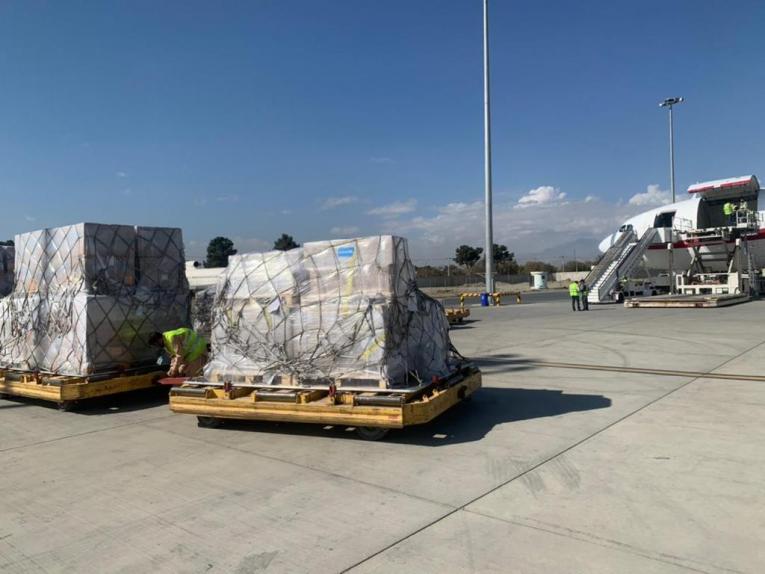
UNICEF medical supplies arrive in Kabul to treat rising cases of acute watery diarrhoea in Afghanistan
UNICEF Supply Division, 19 October 2021
UNICEF has just delivered nearly 40 tonnes of medical supplies, including kits and medicines for acute watery diarrhoea (AWD), to Kabul to treat the rising number of cases of diarrhoeal diseases in the country. The medical supplies are part of UNICEF’s emergency response and will help treat around 10,000 people suffering from dehydration caused by the disease.
In the past weeks, the reported total number of cases of acute watery diarrhoea has surpassed 1,500 in Kabul city and surrounding districts.
This outbreak comes as Afghanistan grapples with alarming levels of malnutrition amongst children under the age of five, a measles outbreak and the continued impact of the COVID-19 pandemic.
“Children in Afghanistan are facing a myriad of threats to their survival as the health system, on which their lives depend, is on the brink of collapse,” said UNICEF Representative in Afghanistan Herve Ludovic de Lys. “UNICEF continues to ensure health facilities have the necessary supplies to treat acute watery diarrhoea amongst children and adults at this critical moment for families in Afghanistan.”
In addition to supporting health facilities with acute watery diarrhoea kits, UNICEF and partners are also scaling up efforts to ensure families have access to information on prevention and are provided with basic hygiene kits and safe water, which is essential for the prevention of acute watery diarrhoea.
“The rapid delivery of supplies is especially critical in time-sensitive situations, such as outbreaks of acute watery diarrhoea, where every day without treatment can have impact on children’s survival,” said UNICEF’s Director of Supply Division, Etleva Kadilli. “It is our core mandate to ensure a rapid emergency response in situations where children’s lives are at stake – and we are working hard to make life-saving supplies available to communities in need at this challenging juncture.”
Further supplies covering the needs of an additional 90,000 people are expected to be delivered in the coming weeks.
Original article here.